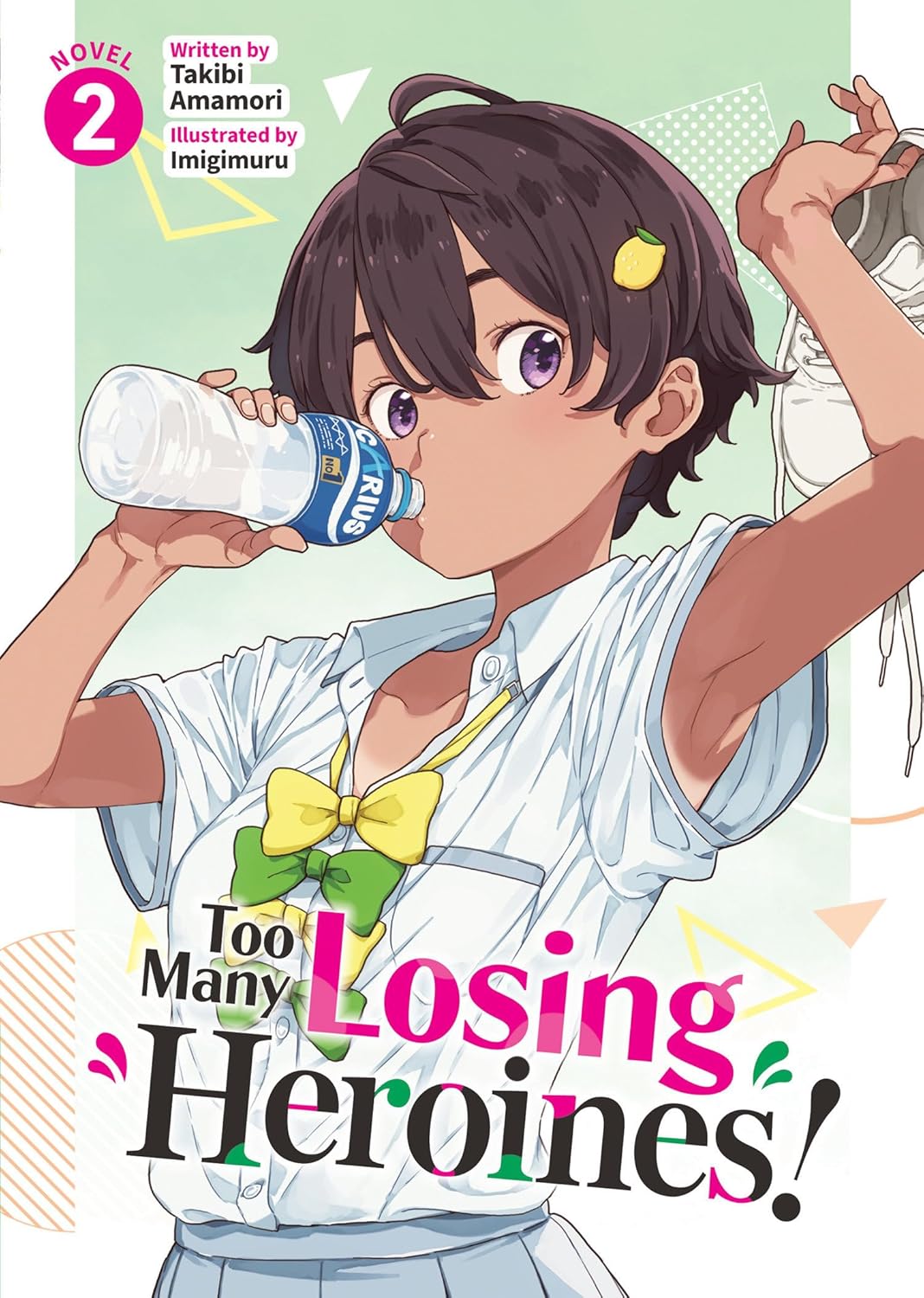By Takibi Amamori and Imigimuru. Released in Japan as “Make Heroine ga Ōsugiru!” by Gagaga Bunko. Released in North America by Airship. Translated by Matthew Jackson. Adapted by Acro.
I had better get used to these books being backloaded in the second half, because I had the exact same experience with this volume that I had with the first. The start of this volume is packed with scenes designed to make the main characters annoying in a funny way, but I mostly found them annoying in an annoying way, particularly our narrator, who may be trying to contrast with the usual light novel romance narrators, but not by much, because like all of them he’s emotionally sensitive to everything but his own mind. As the book goes on, and it delves into the ongoing issues of Losing Heroine #2, and the way that sometimes even after you’ve been rejected you still have to see the guy you like every day, it gets a lot better. When he’s dealing with other people’s love lives, Nukumizu excels. When he’s dealing with his own inability to know what love feels like, you find yourself rooting for Anna. And I hate rooting for Anna.
As mentioned, our three losing heroines have all been rejected, but life still goes on. Anna attends a reunion and is horrified to discover her childhood friend and his new girlfriend acting like they’re already married. Chika is still in the same literature club with the girl who is now dating her crush, and is still being very smug about it. And then there’s Lemon, who seems to be… walking around town with Ayano? What? Is he cheating on his new girlfriend? Is Lemon trying to horn in on a brand new relationship? Nukumizu absolutely does not want to get involved, but he and Anna are forced to when they run into Ayano’s actual girlfriend, Chihaya, who also worries that something is going on between them, and decides to solve the problem by planting tracking devices on her boyfriend and following him around. This is a bad idea, FYI for new couples.
Lemon, frankly, has always given off the impression that she’s supposed to be the dumb one in our cast, but that’s mostly because the characters are all varieties of trope because this book is trying to be a deconstruction (which it succeeds at roughly 1/3 of the time). In reality, she studied hard with her childhood friend and crush so they could go to school together, and concentrates so hard at track because her family are all known for their brains and she doesn’t want to disappoint them, so plays to her strengths. She’s pretty emotionally mature here once she stops literally running away from her problem. As for Anna, who is clearly the secondary protagonist in these books, she kinda likes Nukumizu, and would be amenable to dating him, but she’s still too hurt by her previous relationship. so she needs him to do the job of asking her – and he’s NOT emotionally mature, so that’s not happening. I expect it won’t be happening anytime soon.
All this plus a very funny parody of Villainess isekai which, frankly, could easily be one – Chika should take that to a publisher ASAP. A combination of really irritating and quite heartwarming. In that order.


The Makeine anime was a near-masterpiece, and it’s made me wonder if I should read this series. I’m worried, though, since in my experience, great anime adaptations are just that, and don’t necessarily portend great source material. My primary example is Sankarea, which was an excellent anime, but one of the crappiest things I’ve ever read.